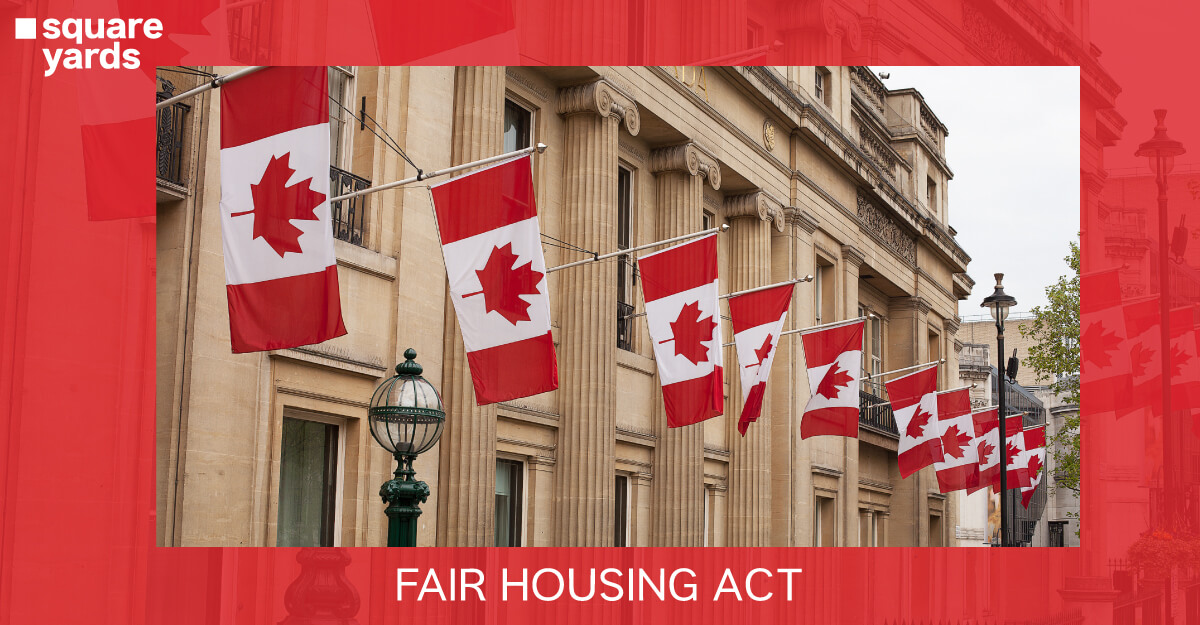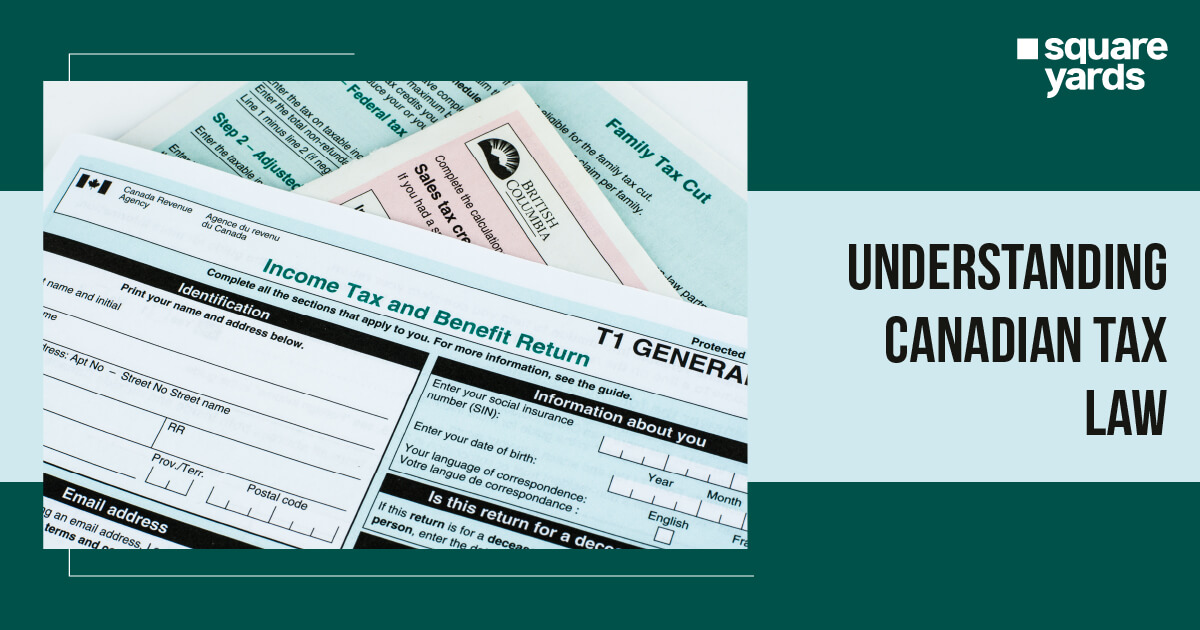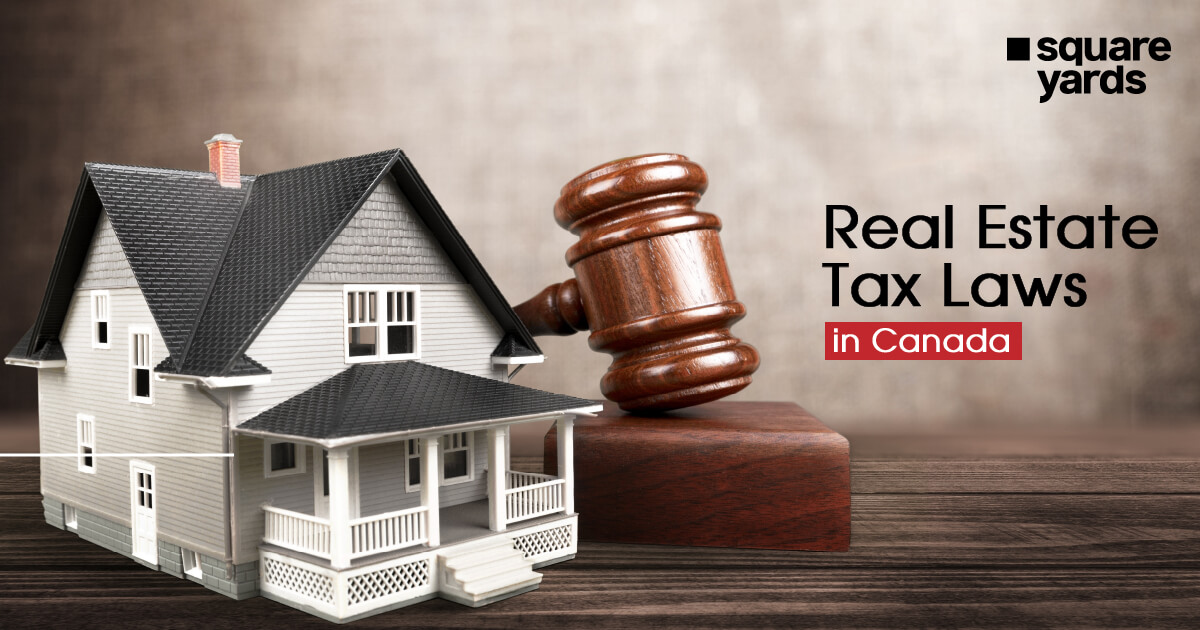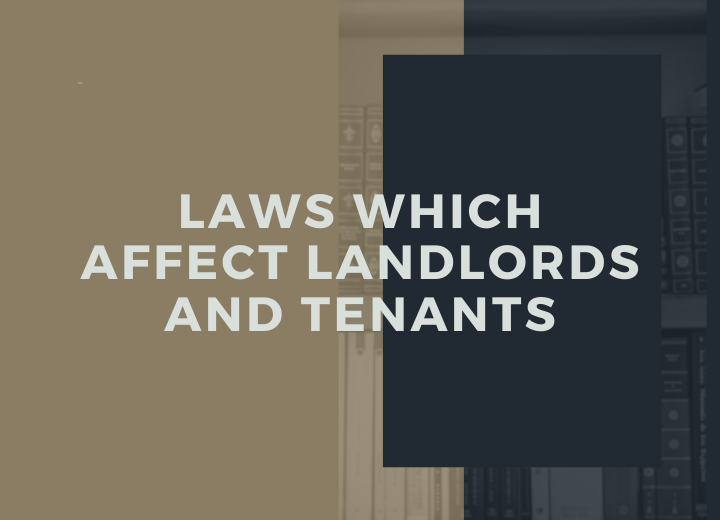The Fair Housing Act is a federal law that prohibits discrimination in property purchase, rent, sale or financing. This act was introduced in 1968 that prevents housing discrimination based on sex, race, skin colour, religion or nationality. However, there have been multiple amendments made to the Fair Housing Act, including in 1988 to append disability and family status. In some jurisdictions, local and state laws may expand but may not minimise in any such cases. In this blog, we will walk you through fair housing laws along with their application and exemptions.
What is the Fair Housing Act?
The Fair Housing Act is a constituent of Title VIII of the Civil Rights Act of 1968, which is designed to eliminate discrimination in housing-related activities such as sale, rental and financing on the basis of race, colour, sex, origin or religion. The Fair Housing Act Canada has undergone subsequent amendments to include protection against disability and familial status-based discrimination. The act also further forbids making the house unavailable based on categorisation.
Moreover, the Fair Housing Laws prohibit the release of any advertisement of dwellings with a preference, limitation, or discrimination. They also protect individuals from threats of interference. The Office of Fair Housing and Equal Opportunity within the US Department of Housing and Urban Development has been established to enforce these acts and ensure equal housing access to all individuals.
Understanding the Fair Housing Act
The Civil Rights Act of 1964 was passed as a response to the movement to end racial segregation in the 1950s and 1960s. It served as a stepping stone to the Fair Housing Act in Canada. This act was passed after the assassination of Rev. Dr. Martin Luther King, Jr. The US Department of Housing and Urban Development enforces the act. Their website provides information on what constitutes legal discrimination and the procedures to follow if a person feels that their inclusion is being negatively influenced. Various states and local jurisdictions also added specific protections for sexual orientation. For instance, in New York, the landlord cannot inquire the individual about their jobs or criminal records. The prohibitions have also been extended to wearing ethnic hairstyles and other attributes.
During National Fair Housing Month in 2023, Rep. Adam Schiff, Sen. Tim Kaine, and Rep. Scott Peters reintroduced the Fair Housing Improvement Act to safeguard veterans and low-income families against housing discrimination. This expanded the Fair Housing Act of 1968 to encompass sources of income and veterans as new protected classes, thereby targeting discrimination of income sources, addressing the absence of documented discrimination cases and lack of federal safeguards.
Understanding of Equal Housing Opportunity
Equal housing opportunity is a concept that every individual should get the same opportunity concerning the housing unit from the real estate market. The Fair Housing and Equal Opportunity (FHEO) office enforces and administers this law. The Department of Housing and Urban Development (HUD) is an office within the United States, which carries out the enforcement responsibility given by the Fair Housing Act.
Note: The Fair Housing Act is also known as the Title VIII of the Civil Rights Act of 1968.
Explanation Rental Discrimination
When a property owner or manager treats an applicant or tenant differently on the basis of falling in the category of the protected class. Moreover, the Court recognised that such discrimination may be intentional or unintentional conduct.
-
- Intentional Discrimination: This housing discrimination occurs when the property owner or manager treated the applicant or tenant differently on the basis of falling in the category of a protected class. Intentional discrimination is also known as disparate treatment.
- Unintentional Discrimination: This housing discrimination occurs when a policy or an action prompt adversely affects the individual of the protected class, even in case of unintentional discrimination. Recently, the United States Supreme Court stated that the Fair Housing Act recognises unintentional discrimination. As a result, property owners and managers must be mindful that they might land themselves in legal trouble. Moreover, they might be susceptible to practices and policies that pose a negative impact on the protected class, even if it is unintentional. Unintentional discrimination is also known as disparate impact and such impacts are recognised under state laws. To ensure compliance, property owners and managers must research local and state anti-discrimination laws.
Protected Classes in Terms of Rental Discrimination
In terms of fair housing, discrimination simply means treating rental applicants and tenants differently because they fall under the protected class category. Beyond the fair housing act, local and state laws may also provide protection to the tenant and rental applicants in further protected classes. Refer to the information below to know more about the protected class:
Federal Laws:
-
- Physical or mental disability
- Race
- Sex
- National origin
- Familial status
- Colour
- Religion
Under Local and State Law:
-
- Citizenship
- Genetic information
- Sexual orientation
- Gender expression or identity
- Age
- Military or Veteran status
- Criminal history
- Income source (including local, state federal rental-assistance programs. Such programs include Section 8 housing choices temporary rental help and vouchers)
Determination Factor of Max Occupancy
In order to determine the max occupancy factor of the housing market, you need to get familiar with applicable maximum occupancy laws. The maximum occupancy is subject to change depending on the bedroom size, square footage and configuration of the housing unit. Several property owners and managers use the national guideline by Keating Memorandum issued by the HUD. However, some individuals may use the square foot guidance via Building Officials and Code Administrators (BOCA) code.
-
Keating Memorandum:
According to the Keating Memorandum, only two individuals are allowed per bedroom configuration in a housing unit. If you are planning to rent a 1 BHK property from the housing market then you can accommodate only two people in the unit. Under this standard, the property owner and manager should acknowledge the below-mentioned information:
-
- Layout and property size.
- Tenant’s children’s age.
- Building capacity.
- Stranded of local or state laws.
-
Building Officials and Code Administrators Code:
Refer to the information below to get an understanding of the BOCA code in the housing market:
-
- The minimum square footage is 150 for the first occupant, and for each additional occupant, the square footage must be increased by 100.
- Each room that is inhabited for sleeping purposes should contain at least 70 sq. ft. In case of multiple occupants, the minimum area is 50 sq. ft. per occupant. Suppose two individuals are occupying the same room, then the minimum area must be more than 100 sq. ft.
Note: No matter whether you use Building Officials and Code Administrators or Keating Memorandum, ensure to standardise the policy and make your tenant facility with the applied guideline with local or state regulations. Also, document the policy.
What To Consider While Renting to Families With Children
The familial status is a legally recognised relationship. The familial status belongs to the protected class. Property owners and managers need to be aware of the important details. In case you are preventing them away intentionally or unintentionally even when the unit is fit for them according to any of the standard guidelines, then it will be considered a form of housing discrimination.
Refer to the information below to know more about the standard guidelines:
-
- A property owner or manager cannot turn down a tenant if they have children below the age of 18.
- Landlords cannot direct you with your children to a specific housing unit that they feel is more suitable. If you are eligible under the square footage and bedroom criteria, they can’t steer you away.
- Property owners and managers are not allowed to charge you extra rental charges on the basis of your familial status.
| Did You Know? One-third (33%) of the tenants of the globe live with their children. |
Exempt of Fair Housing Laws

Fair housing laws are applied to every single-family home and multifamily dwelling. However, there are few exceptions for property owners and managers even though the discriminatory practices are illegal. Refer to the information below to know more about the exemptions:
-
- If you own the property that you are occupying which has four or fewer housing units.
- In the case of single-family units that are sold by the property owner without a real estate agent.
- The housing units are run by a religious organisation or privately run club that sets its own bar of occupancy solely for its member.
Prohibition Under Fair Housing Laws
Fair housing laws were fabricated to make sure that every locality becomes a residential opportunity. Moreover, the main motive behind the creation of such laws is to prevent individuals from being discriminated against for falling into the protected class. These laws for housing units prohibit property owners and managers from doing discriminatory practices due to skin colour, sex, age, race, familial status, disability, national origin or religion. Refer to the below-mentioned information to know about what fair housing laws prohibit:
-
- Advertisement for a specific group of individuals.
- Discriminating individuals during the screening process.
- Denying tenants access to the housing units
- Constantly changing qualifications criteria (setting unrealistic terms and conditions)
- Taking vengeance or unethical actions against tenants.
- Refusing individuals with disabilities for housing units.
Understanding of Reasonable Accommodation

In case, the tenants make a rightful request to a property owner or manager to provide an exemption to their terms and conditions based on a disability-related requirement known as a reasonable accommodation. The request may include the requirements of individuals associated with them, such as family or friends. The reasonable request must be granted to allow an equal housing opportunity same as any other tenants. These reasonable accommodations may include:
-
- Granting a live-in assistance provider or assistance animal such as a guide dog (assistance animals do not fall under the pet category)
- Preventing the use of certain cleaning products or pesticides that may cause irritation or trigger allergies.
- Reserve parking space.
Reasonable Modification
The modification which is made to a housing unit on a request of differently-abled people to get equal access to the opportunities of housing units is known as a reasonable modification. These modifications are made in terms of amenities offered or physically changing the property. The reasonable modifications may include:
-
- Lowering the countertops
- Attaching grab rails in the shower
- Creating a ramp adjacent to the entryway steps so that it becomes accessible via a wheelchair.
To Sum Up
The fair housing act was introduced to prevent housing discrimination in the real estate market and give everyone equal housing opportunities. This act is somehow connected with the Civil Rights Act of 1968 to prohibit discrimination against individuals who fall in the protected class category. The fair housing act is administered by the Fair Housing and Equal Opportunity (FHEO) office. In addition, there are certain guidelines provided by the Keating Memorandum and Building Officials and Code Administrators (BOCA) that determine the occupancy of a housing unit. These guidelines prohibit property owners and managers from practising discriminatory activities against tenants. The protected class under federal, state and local laws are selected on the basis of race, religion, familial status, sex, skin colour, national origin, citizenship, sexual orientation and so on.
You May Also Read :
| Guide To Real Estate Tax in Canada | Real Estate Tax in Canada |
| Canadian Landlord Tenant Rights | Landlord Tenant Rights |
| Know About Income Tax in Canada | income Tax in Canada |
| Rights Under Canadian Employment Law | Canadian Employment Law |
Frequently Asked Question (FAQs)
The BOCA stands for Building Officials and Code Administrators, which is a housing market guideline that helps you know the determination factor for occupying any housing unit.
Yes, differently abled properly fall under the protected class category. Reasonable accommodation and reasonable modification are two terms that have been included in the Fair Housing Act to prohibit housing discrimination and facilitate the same housing market as others.
No, you won't be barred from renting a unit due to your different sexual orientation as an individual with such orientation falls under the protected class via the local and state laws. Property owners or managers can’t practise discriminatory activities against you on the basis of your sexual orientation. Such discrimination is prohibited by fair housing laws. What does BOCA stand for?
Do differently abled properly fall under the protected class category?
If I will be barred from renting a house if I have a different sexual orientation?






